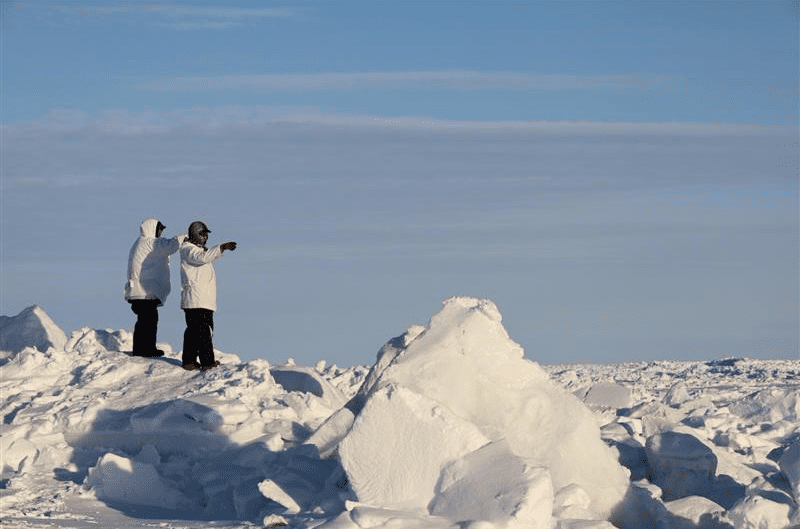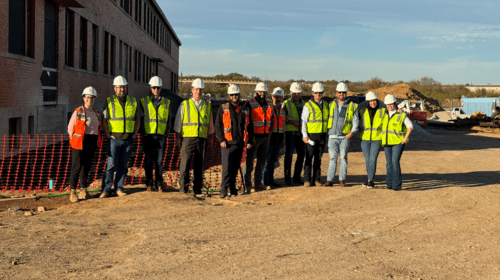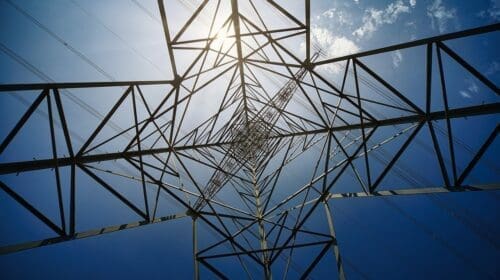While the federal government continues to wage its war on oil and gas, many entities and communities throughout the United States find their way of life to be considered nothing more than collateral damage. Failing to zoom in more closely and consider the effects of its policies, the federal government leaves a wake of destruction for citizens, especially those who rely on resource development projects in their region. As a result, nonprofit organizations need to levy some source of representation.
The North Slope of Alaska is no different. The region largely depends on oil and gas development projects, and recent federal decisions have threatened local communities’ way of life. Voice of the Arctic Iñupiat (VOICE) facilitates a network of communication among North Slope communities to establish a unified voice when discussing critical issues like these. While the organization focuses on local advocacy and engagement with state, federal and international platforms to address issues affecting the Arctic, it seeks to promote an understanding of the region’s economy and how it is intertwined with the North Slope Iñupiat’s culture and traditions.
VOICE seeks to protect the interests of eight local North Slope communities, including support for self-determination in the form of responsible resource development projects in the region. With attention given to protecting the area’s land, waters,and resources, the organization serves the population as an avenue for the presentation of information from outside sources, including governmental and nongovernmental entities.
With the Biden administration’s hyper-focused threat to fossil fuels, VOICE has actively sought to connect with the federal government to discuss the impact of recent policies on the North Slope communities it represents. The latest federal proposed rule threatens the areas of focus that VOICE strives to represent and protect. Due to the course of action taken by the Biden administration, the North Slope’s economy, communities and culture will be at risk, provoking profound changes to the everyday experience of the North Slope Iñupiat.
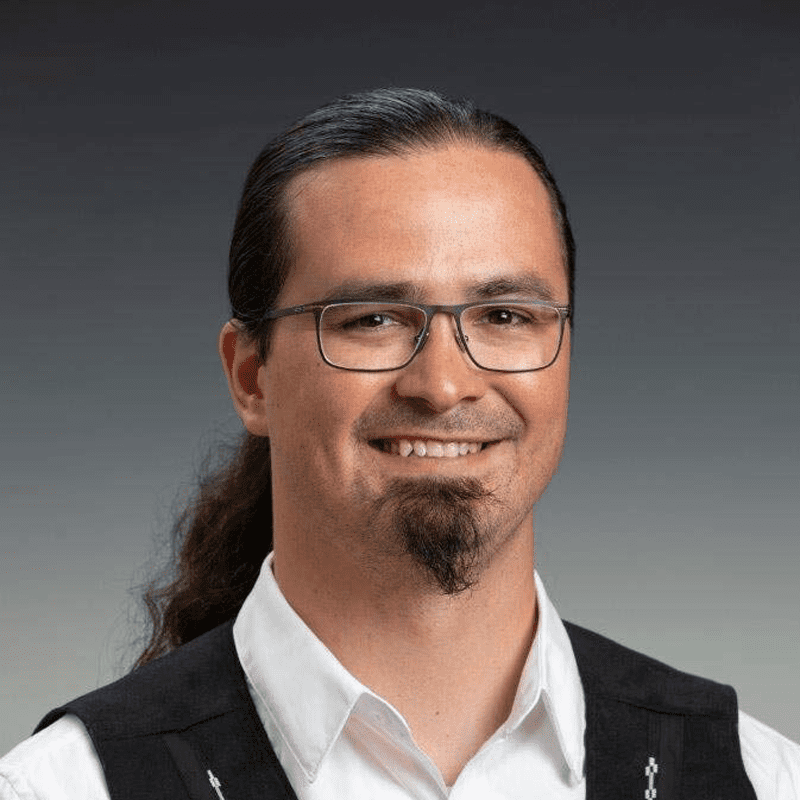
According to Nagruk Harcharek, president of VOICE, the United States appropriated 23 million acres of the North Slope Iñupiat’s homelands to establish the National Petroleum Reserve in Alaska (NPR-A). Now, the federal government seeks to essentially lock up more than half of the NPR-A by removing 13 million acres and placing it into special protective status. Harcharek indicates that the economic analysis underpinning the federal government’s decisions does not consider the negative economic impact of its NPR-A Proposed Rule to the local people, and has joined other local and state elected officials to urge the White House to re-examine the analysis underpinning the decision by the Department of the Interior (DOI). The potential effect on the industry served as the only criteria in the decision-making process, and the economic impact on the North Slope Iñupiat should have been given more consideration. Given the current path being taken, Harcharek feels that the people that stand to be most affected by the proposed rule and the serious potential consequences of it are being ignored by the federal government.
“If media reports are correct, the federal government has once again chosen to overlook the legitimate concerns of elected Indigenous leaders from Alaska’s North Slope,” stated Harcharek in an April 11, 2024, press release. “This is a continuation of the onslaught of being blindsided by the federal government about unilateral decisions affecting our homelands. As reported, the White House is touting the advancement of the DOI’s September 6, 2023, decision to restrict development on over 50 percent of the National Petroleum Reserve in Alaska (NPR-A), yet another blow to our right to self-determination in our ancestral homelands, which we have stewarded for over 10,000 years. Not a single organization or elected leader on the North Slope, which fully encompasses the NPR-A, supports this proposed rule. In fact, everyone has asked [the] DOI to restrict the rule.”
The North Slope’s relationship with oil and gas includes multiple aspects of the industry, with infrastructure being a critical area. Not only do local communities draw jobs from these various services, but more than 95 percent of the region’s tax base comes from infrastructure development. Harcharek maintains that this funding is critical and is allocated toward essential services, including healthcare facilities, schools, water and sewer systems, and wildlife management.
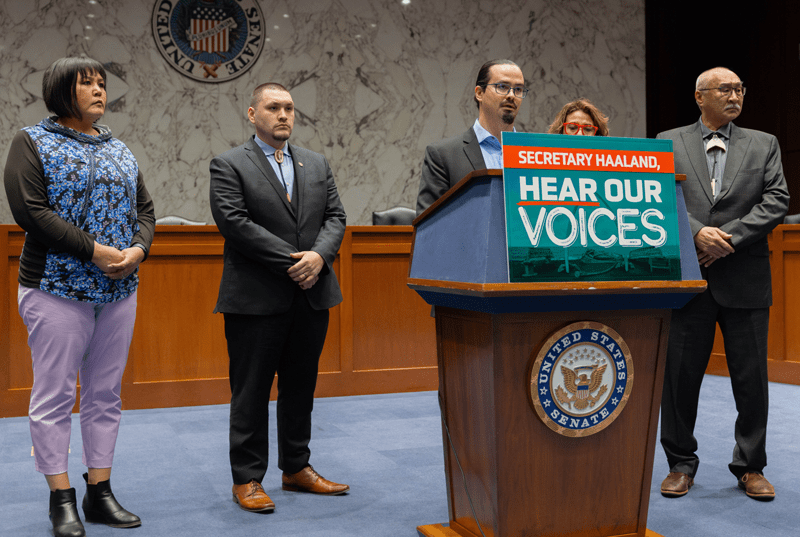
“These basic services, which are commonplace throughout the Lower 48, have only arrived on the North Slope within the last generation and are directly connected to significant increases in average life expectancy over the past 50 years in our region,” Harcharek stated in the press release. “And what is more valuable than the gift of life, time with your family, time with your loved ones?”
As a result, Harcharek feels the region will be severely impacted by the DOI decision. Communities will experience hardship when attempting to provide and maintain these essential services for future generations.
“Their actions will also foreclose on future development opportunities and long-term economic security for North Slope Iñupiat communities, which was recently recognized by a bipartisan resolution passed by the Alaska State Legislature,” says Harcharek.
The Alaska State Legislature recently joined North Slope Iñupiat elected leaders in voicing its concerns about the DOI’s NPR-A Proposed Rule by passing the bipartisan HJR 20. The resolution, which was adopted by an overwhelming majority, urged the DOI to rescind its decision and more thoroughly investigate the economic consequences the proposed rule would have on local North Slope communities.
“North Slope elected leaders repeatedly and consistently highlighted this flawed economic analysis and its implications for our communities to the administration over the course of nearly a dozen meetings, concerns which have been summarily ignored because they do not comport with the federal government’s preferred policies,” Harcharek added in the press release.
Fueled by his sense of responsibility for the North Slope’s people and assets, Harcharek expressed concern for the current state of affairs and the lack of consideration given to the North Slope Iñupiat, indicating the federal government did not consult with local governments or elected officials before the original announcement was made last September. He noted that multiple requests for increased community engagement and discussions on procedures and processes were ultimately ignored. He additionally directed attention at Interior Secretary Deb Haaland – the first Native American to hold a cabinet position – and her ignoring at least eight requests for meetings from North Slope leaders, even while the federal government promised to communicate with Indigenous communities and consult with local governments before implementing policies affecting their constituents and their land.
Harcharek concluded the press release by stating: “We will continue to advocate for our right to self-determination and to be consulted on all matters that impact our lands and people.”
Learn more at www.voiceofthearcticinupiat.org.
Headline photo courtesy of Voice of the Arctic Iñupiat (VOICE).
Nick Vaccaro is a freelance writer and photographer. In addition to providing technical writing services, he is an HSE consultant in the oil and gas industry with twelve years of experience. Vaccaro also contributes to SHALE Oil and Gas Business Magazine, American Oil and Gas Investor, Oil and Gas Investor, Energies Magazine and Louisiana Sportsman Magazine. He has a BA in photojournalism from Loyola University and resides in the New Orleans area. Vaccaro can be reached at 985-966-0957 or nav@vaccarogroupllc.com.
Oil and gas operations are commonly found in remote locations far from company headquarters. Now, it's possible to monitor pump operations, collate and analyze seismic data, and track employees around the world from almost anywhere. Whether employees are in the office or in the field, the internet and related applications enable a greater multidirectional flow of information – and control – than ever before.

